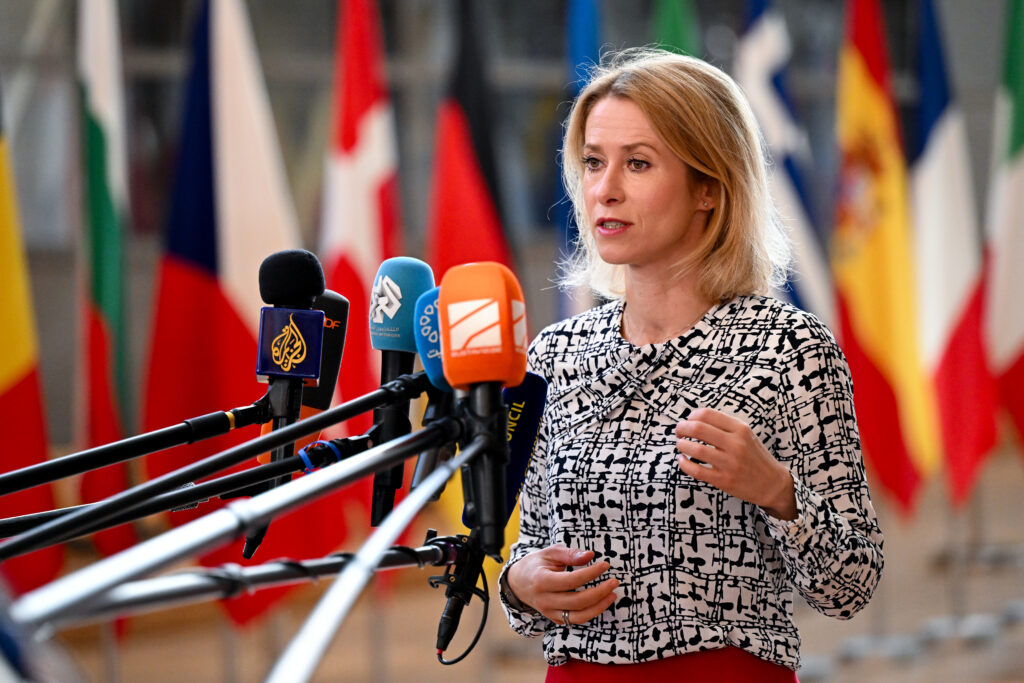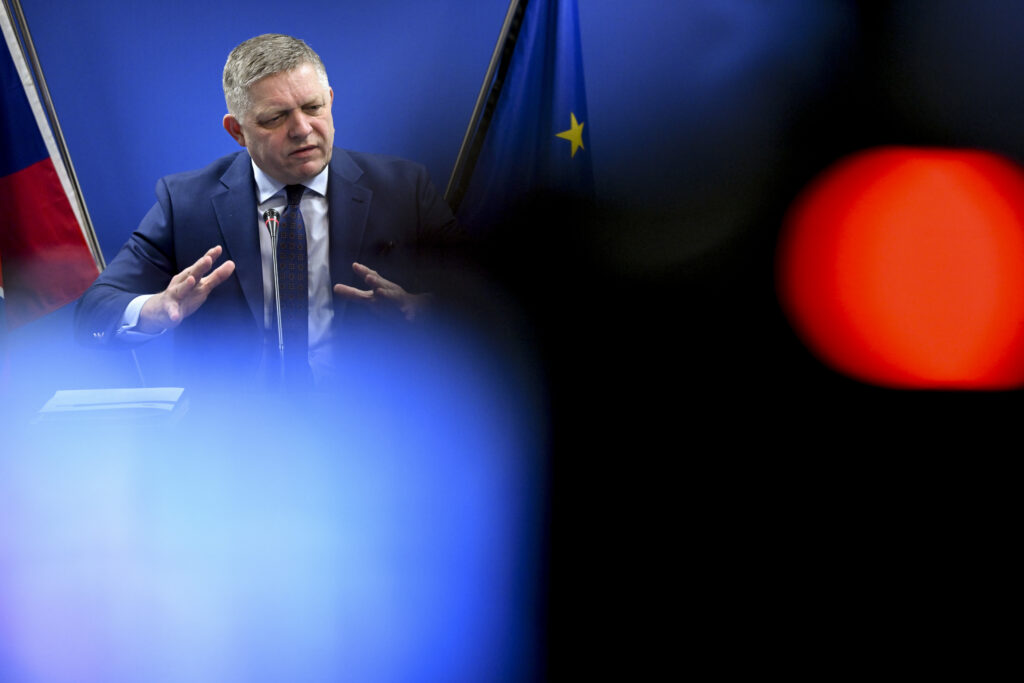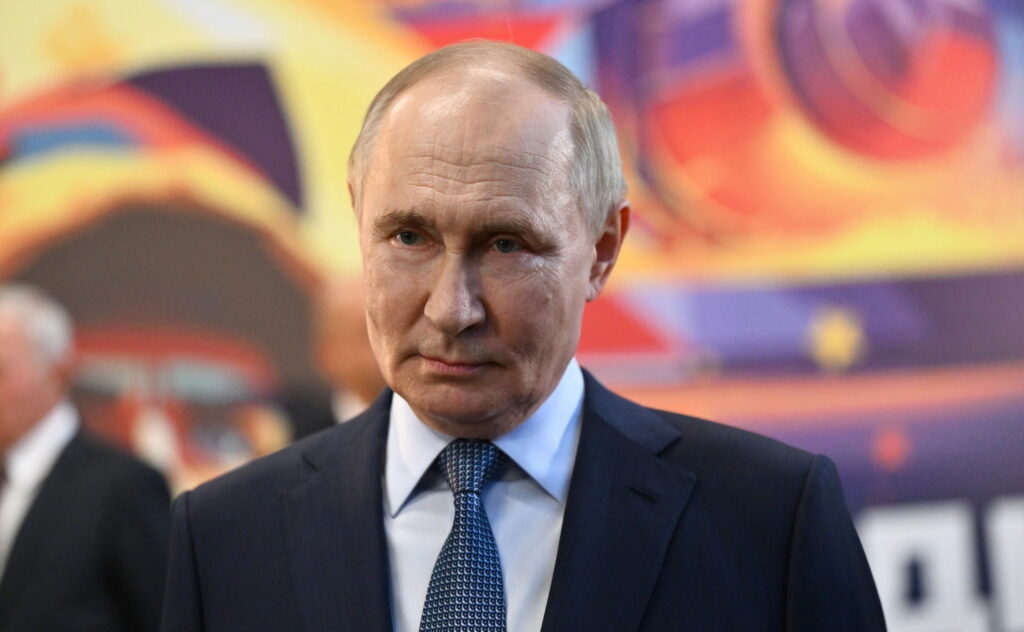Brussels – All’s well that ends well. After more than a month of stonewalling, Slovak Prime Minister Robert Fico has finally withdrawn his veto on the 18th package of sanctions against Russia, allowing it to be formally adopted this morning. The EU is thus proceeding with a new sanctions package to limit revenues fueling the Federation’s war against Ukraine, just in time before the summer break. In the crosshairs are oil exports, with the introduction of a variable cap, and Moscow’s banks.
Robert Fico, in a lengthy video posted last night (July 17) on Facebook, explained why his government, after over a month of resistance, finally abandoned its opposition to the adoption of the 18th round of restrictive measures against Moscow, an opposition it had upheld six times in five weeks.
The prime minister explained how maintaining the veto on sanctions decided by Brussels “would at this point be counterproductive” for the central European country. The change of pace is due, he said, to the reaching of an agreement with the President of the Commission, Ursula von der Leyen, on a series of energy supply guarantees for Slovakia. Specifically, Bratislava, still dependent on cheap Russian gas, would introduce emergency mechanisms to protect the domestic market from sudden fluctuations in methane prices and supply shortages.
Fico added that he would keep a close eye on the implementation of guarantees, saying he is ready to resume the fight at any time. After today’s vote, “the second phase of our battle with the European Commission over Russian gas will begin,” he warned without giving further details.
To the satisfaction of High Representative Kaja Kallas, who at meeting of the Foreign Ministers of the 27 member states on Tuesday (July 15) had said she was “confident” that an agreement was possible within the week, the General Affairs Council was therefore able to formally adopt the sanctions by written procedure this morning, following the Danish Presidency’s last-minute summons of ambassadors.
The new restrictive measures, presented by the twelve-star executive in early June and described by the head of EU diplomacy as “one of the strongest sanctions packages adopted to date,” will hit even harder two key sectors of the Russian economy, the energy and financial/commercial sectors.
The move comes just two days after the presentation of the new EU budget 2028-2034, designed by von der Leyen, which includes a special 100 billion fund dedicated to supporting Ukraine. For the head of the Commission, with today’s sanctions, “we are striking at the heart of Moscow’s war machine.”
 EU High Representative for Foreign Affairs, Kaja Kallas (photo: European Council)
EU High Representative for Foreign Affairs, Kaja Kallas (photo: European Council)
According to diplomatic sources, on the energy, there will be a further crackdown on fossil fuel imports from the Kremlin, including the blacklisting by Brussels of 105 new oil tankers from Russia’s ghost fleet (bringing the total to over 400 vessels), a ban on any transaction through the Nord Stream 1 and 2 pipelines, and a ban on the purchase from any third country – except Canada, Norway, the United Kingdom, the United States, and Switzerland – of refined oil products obtained from Russian crude, to counter the circumvention of the Western embargo.
The package also envisions a lowering of the oil price cap, a controversial measure on which the EU has come out in the open without Washington’s support, even though it was the G7 that initially decided on the oil price cap. EU diplomats say there will be a “dynamic price cap mechanism” for crude oil, through which a unit cost cap is set at 15 percent below the average market price. In concrete terms, this means a drop from USD 60 to USD 47.6 per barrel, while a “dynamic revision mechanism” will allow for adjustment as the price rises.
In the financial sector, there are new restrictions against 22 Russian banking institutions, the extension of the current exclusion from the Swift system to a total ban on transactions, the prohibition of transactions with the Russian Direct Investment Fund (RDIF), and a further restriction of Moscow’s access to civil and military dual-use technologies (e.g., CNC machines used in the production of components for the automotive, space, and missile industries).
 Slovak prime minister, Robert Fico (photo: European Council)
Slovak prime minister, Robert Fico (photo: European Council)
Slovakia had stood in the way of the new package since its presentation, but in reality, Bratislava’s obstructionism comes from afar. At least since the beginning of the year, when Fico engaged in a tough standoff with Brussels and other chancelleries following Kyiv’s decision to stop Russian gas transit through Ukrainian territory at the end of 2024.
The Prime Minister exploited the unanimity requirement – necessary to approve sanctions against third countries – as a lever to raise his voice on another issue, where instead a qualified majority of the Council decides: that of the phase out of fossil fuels imported from the Federation by 2028.
The stop to Russian gas imports, Fico argues, would be catastrophic for the national economy. That is why, in recent weeks, the national-populist leader (one of Vladimir Putin‘s staunchest allies, along with Hungarian Viktor Orbán) has maintained his veto on the latest sanctions, until today. But that may not happen again.
English version by the Translation Service of Withub
